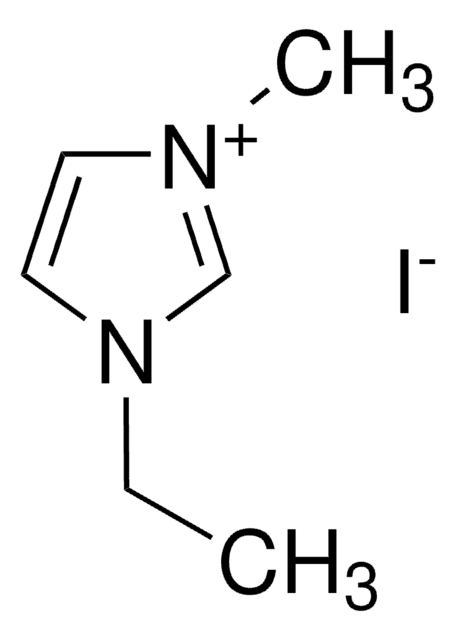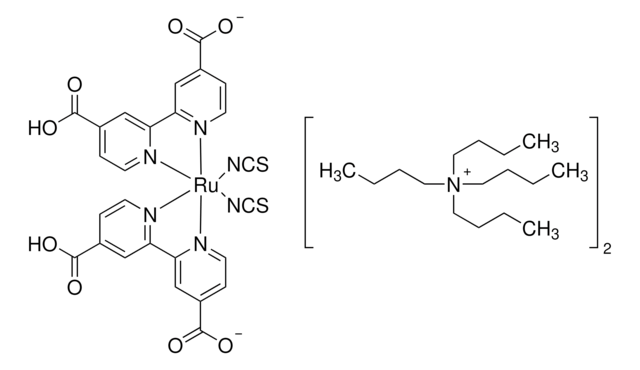推荐产品
品質等級
化驗
99.7% trace metals basis
形狀
wire
自燃溫度
860 °F
電阻係數
42.0 μΩ-cm, 20°C
直徑
0.25 mm
bp
3287 °C (lit.)
mp
1660 °C (lit.)
密度
4.5 g/mL at 25 °C (lit.)
SMILES 字串
[Ti]
InChI
1S/Ti
InChI 密鑰
RTAQQCXQSZGOHL-UHFFFAOYSA-N
一般說明
钛(Ti)线是一种半导体材料,其能带隙约为4.85 ev,而电导率约为~10-13 Ω-1cm-1。
應用
钛线可用于各种应用,如染料敏化太阳能电池(DSSC)、固相微萃取纤维、生物医学用途以及TiO2纳米管的制备。
數量
2.2g = 10m;11g = 50m
儲存類別代碼
11 - Combustible Solids
水污染物質分類(WGK)
nwg
閃點(°F)
Not applicable
閃點(°C)
Not applicable
個人防護裝備
Eyeshields, Gloves, type N95 (US)
其他客户在看
Unbreakable solid-phase microextraction fibers obtained by sol- gel deposition on titanium wire
Azenha MA, et al.
Analytical Chemistry, 78(6), 2071-2074 (2006)
Porous titanium materials with entangled wire structure for load-bearing biomedical applications
He G, et al.
Journal of the Mechanical Behavior of Biomedical Materials, 5(1), 16-31 (2012)
Electrode coatings from sprayed titanium dioxide nanoparticles-behaviour in NaOH solutions
Hayden BE, et al.
Electrochemical Communications, 3(8), 390-394 (2001)
The 3-dimensional dye-sensitized solar cell and module based on all titanium substrates
Liu Y, et al.
Applied Energy, 87(2), 436-441 (2010)
Improved photocatalytic degradation of textile dye using titanium dioxide nanotubes formed over titanium wires
Kar A, et al.
Environmental Science & Technology, 43(9), 3260-3265 (2009)
商品
Biomedical implants are essentially foreign substances within the human body that must survive many years’ exposure to demanding mechanical and physiological conditions. Despite these challenges, metal implants have been widely used to substitute for or rebuild hard tissues such as bones and teeth.
我们的科学家团队拥有各种研究领域经验,包括生命科学、材料科学、化学合成、色谱、分析及许多其他领域.
联系技术服务部门




